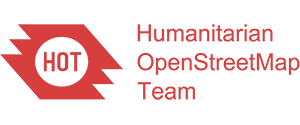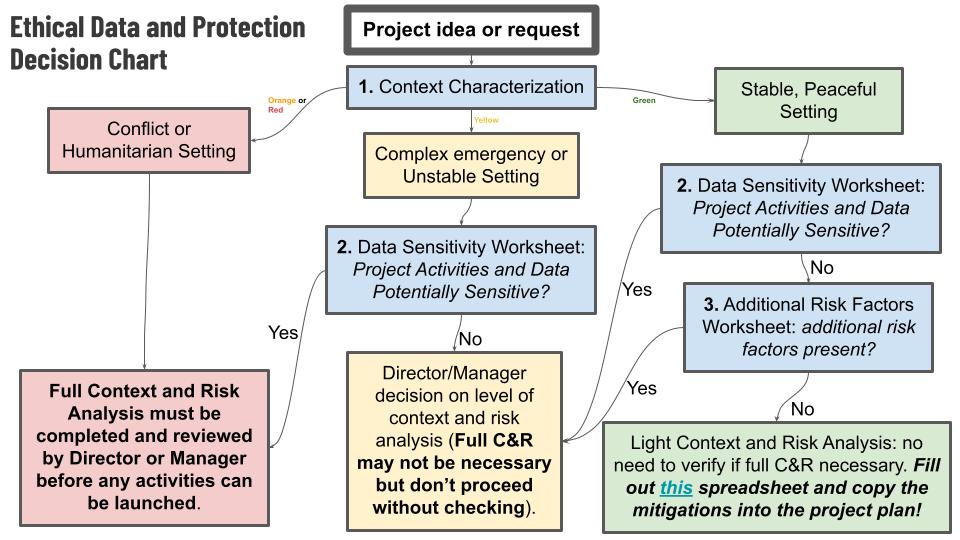This is the public portal for HOT's policies, guidance, tools, and resources for Ethical Data and Protection in open humanitarian mapping.
The resources here are used internally by HOT Open Mapping Hubs, the HOT Central team, and associated communities. In keeping with HOT's commitment to open data, public resources, collaboration, and above all community-first action, we are pleased to make this repository available to anyone—not only to read, but to contribute with content, suggestions, critiques, and resources.
First and foremost, this toolkit represents a process to think through Protection risk when starting new open mapping activities. At it's heart is a spreadsheet-based tool which begin at the stage of a new project proposal and guide users through a rapid process to determine the baseline level of Protection risk and decide what Risk Assessment procedure to use based on possible risks and mitigations.
Each blue node in the flowchart is a decision-making node, and links to a tab in the spreadsheet. For example, the Context Categorization node corresponds to a Context Categorization tab in the spreadsheet, which provides a set of criteria and examples to guide the user in a decision about the inherent protection risk level of the context they are considering working in.
- HOT Protection Policy (English, French, Spanish)
- Spreadsheet-Based Tool (English, French, Spanish)
- Training Workshop Presentation with sample scenarios. It is most effective when used by an experienced trainer, but for people somewhat familiar with Protection concepts and risk assessment it may serve as a reasonable self-study resource.
- From Github: click the green
Codebutton near the top right of the screen, pressDownload ZIP, and extract it onto your hard drive OR browse project Github folders. - From Google Drive: Public Protection folder
If you are experienced with Git and Github, and particularly if you would like to contribute to this resource, it is better to clone or fork the repo. This has two major advantages:
- You can always get the most updated version of the tools by using
git pull - You can contribute your own suggested changes via a pull request, making the toolkit better for everyone!

